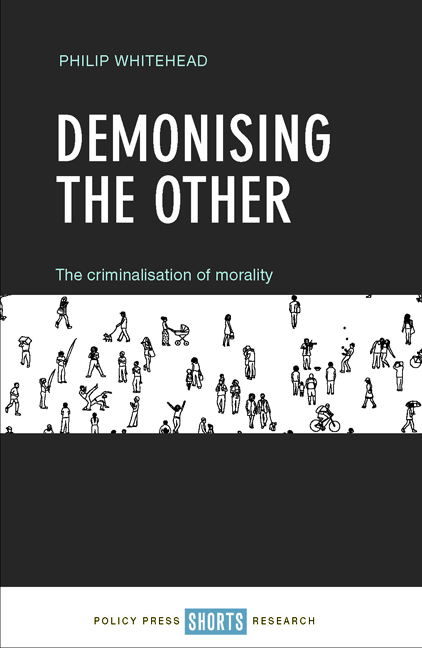Book contents
- Frontmatter
- Dedication
- Contents
- Prologue
- One Framing the other: stepping into the stream of history
- Two Criminalising the other: a criminal justice excursus
- Three Contesting the other: sinking ethical shafts
- Four Transcending the other: moral economy and universal ethics
- Concluding comment
- References
- Index
Two - Criminalising the other: a criminal justice excursus
Published online by Cambridge University Press: 08 April 2022
- Frontmatter
- Dedication
- Contents
- Prologue
- One Framing the other: stepping into the stream of history
- Two Criminalising the other: a criminal justice excursus
- Three Contesting the other: sinking ethical shafts
- Four Transcending the other: moral economy and universal ethics
- Concluding comment
- References
- Index
Summary
With one notable exception mentioned earlier (Eriksson, 2016), there are no monographs dedicated solely to the subject of criminal justice and the offending other, which is a surprising academic omission. However, the subject of the other is a sub-theme coursing through a number of texts, including Becker (1963) on outsiders, Cohen (1973) on folk devils, Jütte (1994) on the stigmatised and Bauman (2004) on wasted lives and outcasts (for a contemporary reading of the scapegoat, see also Winlow et al, 2016). In other words, there are scattered deposits, located within disparate intellectual resources, waiting to be garnered and then flushed to the surface to forge a synthesis of the subject. I would like to present a brief literature review of these resources on the demonised and relegated other in criminal justice and penal policy.
Criminological resources on the demonised other
Garland (2001, p 137) refers to a criminology of the other along two axes. First, offenders are just like us, indistinguishable from the law-abiding. The only difference between the law-abiding and lawbreaking is that the latter have failed to exercise the quality of reason that would prevent recourse to criminality. Given the correct calibration of rational choice and deterrent punishment, criminal behaviour can be avoided (the principle of classical criminology). Second, ‘scientific’ positivism constructs the image of dangerous predators lurking in the shadows, the harmful and risky who pose a threat to civilised life in the city. So, essentially, not like us at all. Positivism ascribes to offenders an ontological otherness (biological, psychological, sociological), a different essence, discoverable by the appliance of science and the finely calibrated instruments of quantitative measurement. This is a ‘scientific’ approach that involves the application of numbers to people snagged by the criminal justice system, in addition to the aforementioned konzentrationslager. Rodger expands the category of offending behaviour to include ‘chavs’, those not in education, employment or training (NEETs), and the underclass of late-capitalist modernity. They have been described as the ‘willful deviants who behave in an anti-social way because they fail to take the opportunities and make the choices that would benefit them most’ (Rodger, 2008, p 69). Cook (2006) clearly asserts that the criminal justice system constructs the deviant other.
- Type
- Chapter
- Information
- Demonising the OtherThe Criminalisation of Morality, pp. 25 - 46Publisher: Bristol University PressPrint publication year: 2018



